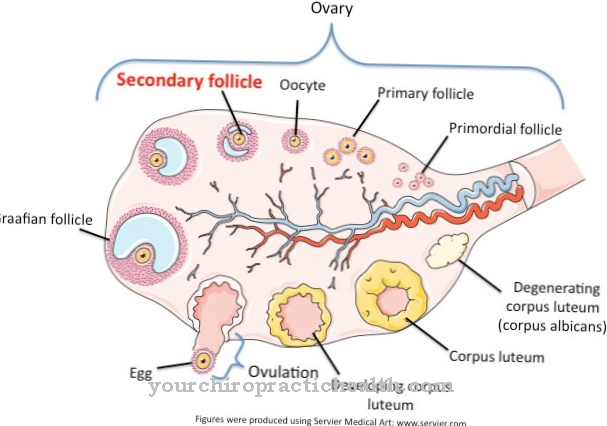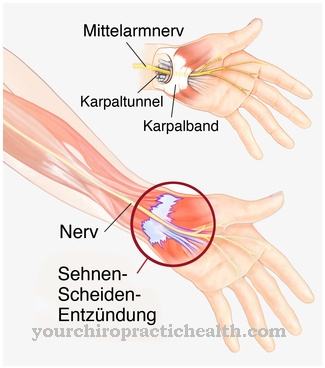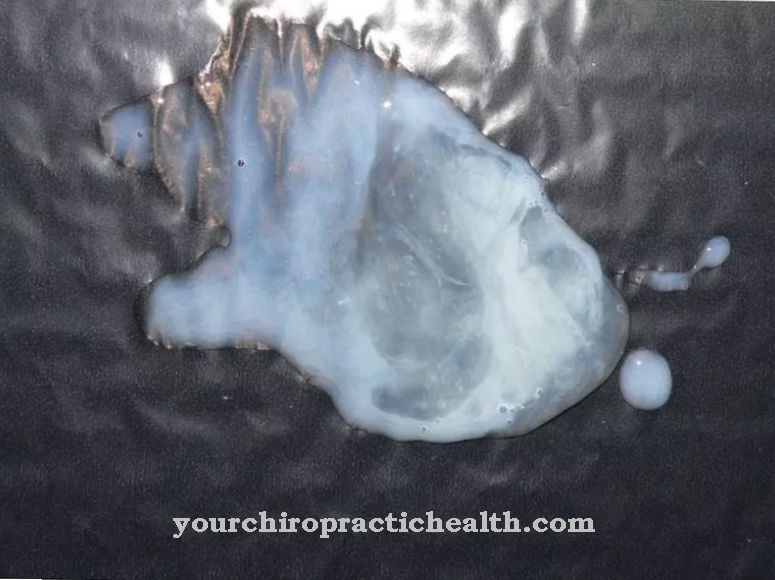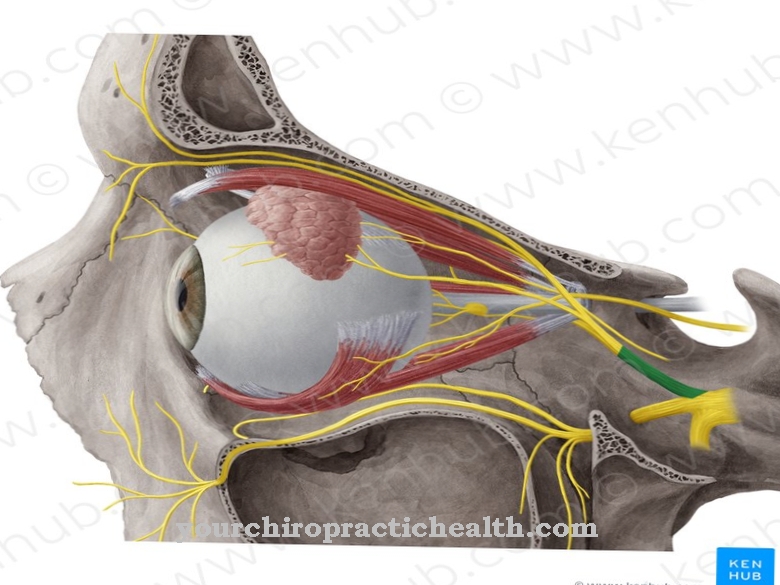The endocrine glands are Hormonal glandsthat release their secretions directly into the bloodstream. The pituitary gland is responsible for controlling the entire endocrine system. In the case of organ diseases of the endocrine glands, the hormonal balance gets mixed up and metabolic problems in particular arise.
What are endocrine glands?
The word endocrine comes from the Greek and means something like giving off inwards. Endocrine glands are therefore glands that secrete directly inward into the blood without a duct. The exocrine glands are to be distinguished from this. They release their secretions through an apocrine, eccrine, holocrine or merocrine duct into a cavity.
Most of the human glands are exocrine glands. Only the hormones are secreted directly into the blood without a duct. Therefore, the term endocrine gland is usually synonymous with that of the endocrine gland. For example, the pituitary, adrenal, and thyroid glands are endocrine glands. The pancreas, on the other hand, has both endocrine and exocrine properties. Together, all of the endocrine glands make up the endocrine system, also known as the hormonal system.
Anatomy & structure
In the area of the parenchyma, glands have special epithelial cells that are sometimes embedded in capsules made of connective tissue. In contrast to exocrine glands, endocrine glands consist of so-called cell islands, in the vicinity of which there is a network-like structure of closely spaced blood vessels. In exocrine glands, the secretions are synthesized in the glandular bodies.In a hemispherical shape, excrine glands are enclosed by secretion pathways that drain the secretion into the bloodstream.
These pathways are often linked to other duct systems that guide the secretion directly to the organs that are supposed to process it further. The secretion pathways are absent in the endocrine glands. In this case, the blood becomes the transport medium. This transport route gives the glands a long range. However, there are also many paracrine endocrine glands. Your hormones only target the organs in the immediate vicinity. Sometimes their secretions are even autocrine secretions, which the producing gland itself absorbs.
Function & tasks
In multicellular cells, metabolic processes and organ functions are regulated by the hormone system. The hormonal system encompasses all endocrine glands. In the human organism, the pituitary gland, pineal gland, thyroid gland and parathyroid gland together with the adrenal glands and the islet organ form the endocrine system. The glands in the human genital organs are also endocrine. The same applies to certain cells of the heart muscle in which peptides are produced.
The hypothalamus connects the diencephalon with the hormonal system. This point controls the release of hormones by sending stimulating commands to the pituitary gland in particular. The pituitary itself is also a central point of the endocrine system, because the hormones of the pituitary gland stimulate the secretion of other hormones from the thyroid gland, the adrenal glands and the gonads. The hormones of the parathyroid gland mainly regulate the calcium balance in the organism. After stimulation by the pituitary hormone, the pancreas mainly releases insulins into the blood, and the adrenal glands secrete stress hormones such as adrenaline and cortisol.
In contrast, the sex hormones are produced and secreted in the island organ of the gonads. The endocrine system is thus involved in vital regulatory processes in the organism. Above all, reproduction, metabolism and growth processes are enocrine processes, but bone structure and blood pressure are also partly controlled by hormones from the endocrine glands. In particular, dysregulation in the area of stress hormones have life-threatening consequences. Since the hormone system is a perfectly coordinated network of individual systems, the individual glands influence each other. So if the secretion in one of the endocrine glands is defective, problems usually arise with regard to the other glands as well.
You can find your medication here
➔ Drugs against sweating and sweatingDiseases
The group of endocrine diseases includes various hormonal diseases. These diseases are characterized by either an underproduction or an excessive production of certain hormones. Typically, in both scenarios, the problem is either with the gland itself or with the pituitary gland. If the gland is responsible for the above or below average hormone production, there are usually organ diseases or injuries in the respective organs.
Thyroid disease and adrenal disease are common causes. If the adrenal glands operate a dysregulated hormone production, symptoms such as trunk obesity, diabetes or high blood pressure sometimes arise. Depression and fatigue are also common. Similar symptoms appear in a disease of the parathyroid glands. Psychiatric clinical pictures in particular are often associated with a disease of the parathyroid glands. Stomach ulcers and kidney stones are also sometimes associated with the disease. If, on the other hand, the pituitary gland is the cause of dysregulated hormone production and secretion, then the general hormone balance can be out of whack.
This can occur, for example, after a brain injury or it can be caused by a tumor in the pituitary gland. In some hereditary diseases, the pituitary gland is also abnormal. This can make it more difficult for the pituitary to stimulate other endocrine glands. Likewise, a hormone-producing tumor can throw the hormone balance out of balance. Such hormone-active tumors often occur in the pancreas, for example, but the pituitary gland can also be affected by such tumors.













.jpg)

.jpg)
.jpg)











.jpg)